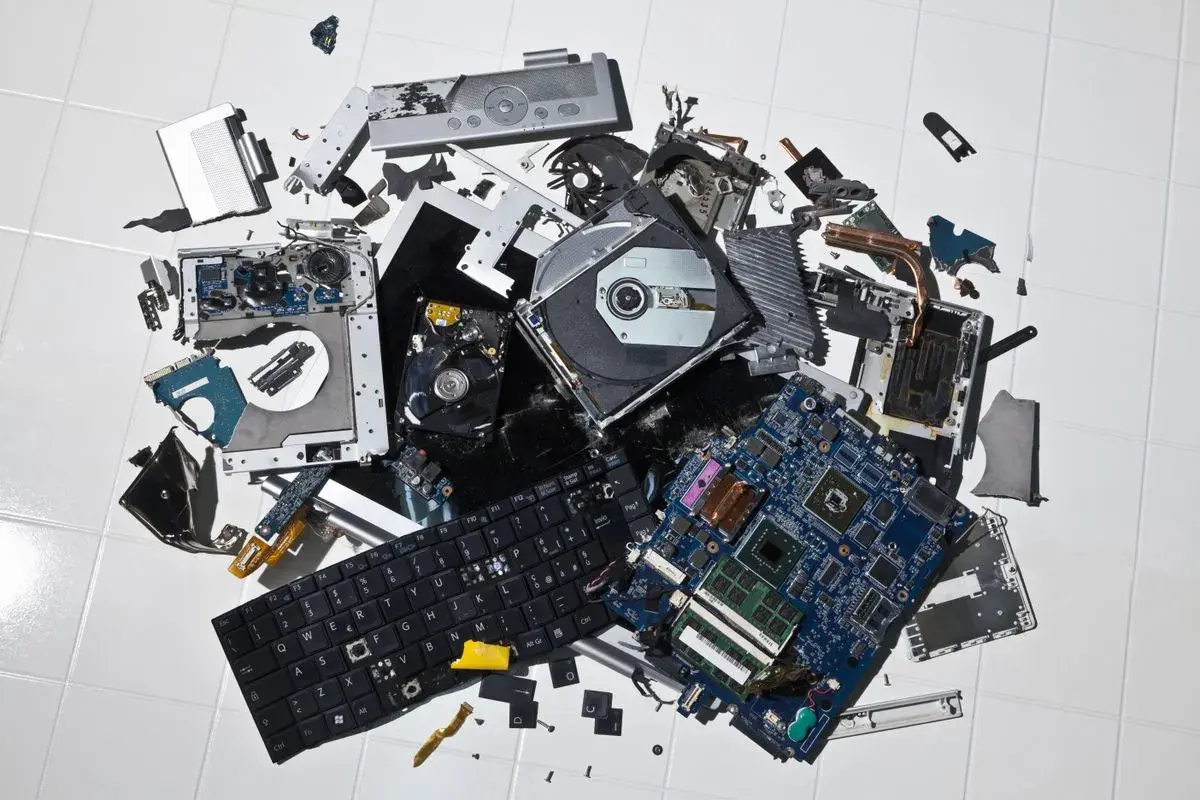Analysts have warned Windows 10 end of life plans could spark a global torrent of e-waste, with millions of devices expected to be scrapped in the coming years.
Research from Canalys shows that up to 240 million PCs globally could be terminated as a result of the shift over to Windows 11, raising critical questions about device refreshes and the responsibility of vendors to extend life cycles.
A lot of Congolese children died in humiliating and painful ways for that e-waste. Now many more will suffer and die. The good news is that Microsoft executives are probably getting a great bonus out of it for their stellar leadership and business acumen.
deleted by creator
People are mad at MS for being MS. MS isn’t great, Windows is flawed, and there should be better alternatives. People would be quick to move to Linux if it worked for them. Most desktops now are for gaming. Most gamers have Nvidia. Linux famously has issues with Nvidia because 90% of the distros out there decided to jump on to Wayland before it was even half done. If that’s the state of Linux where my 8-year-old Windows 10 machine still gets updates regularly and runs fine. Windows 10 will actively prevent you from trying to upgrade and bricking your system whereas Linux is absolutely like “Go ahead, hope you read all the patch notes for the 1000s different updates you are about to get!” Most people will go with Windows because Linux doesn’t work for them.
Overall Linux has the power to be good, it just doesn’t have the community will power to do so.
How the narrative has turned Nvidias active sabotage into Linux maintainers fault is beyond me.
Latest for their reluctance to act on scalpers it should be transparent what you’re getting into with Nvidia.
And then people like you write thing like this… Why?!
Nvidia works fine on X11. You might say it’s Nvidia’s fault for not supporting Wayland more or not having open drivers but the truth is, it doesn’t truly matter. What matters is the end result.
Wanna come configure optimus for me?
On windows it’s trivial.
I think the disconnect here is that others are saying “they aren’t supporting us,” and your response is pretty much “lol, abandon what you’re doing and go back to the corporations.” A totally fair take, but how you’re delivering it comes across as missing their point.
Also “it works on windows” is a terrible rebuttal in a discussion where you first say “it works fine on x11”
I think the disconnect here is that others are saying “they aren’t supporting us,” and your response is pretty much “lol, abandon what you’re doing and go back to the corporations.”
My point is that Linux does nothing to make it easy to support. Nvidia even has made an open source kernel driver. https://github.com/NVIDIA/open-gpu-kernel-modules Nvidia is doing a lot of work to support Linux and people don’t seem to see it.
Also “it works on windows” is a terrible rebuttal in a discussion where you first say “it works fine on x11”
A question to configure Nvidia Optimus is also a terrible rebuttal in the first place. Optimus is blocked because Linux kernel doesn’t want proprietary blobs. AMD has the same exact issue.
The problem is that nvidia’s drivers are shit but we couldn’t do anything because for the longest time, for nvidia cards to work at a decent speed, it requires the drivers to be signed by nvidia.
We couldn’t do anything and you are blaming us for that.
Now that this, AFAIK, has been lifted new things like NVK are emerging.
The problem has been reluctance abd uncooperativeness from nvidia, not the linux community
I’m not blaming any Linux users for that. I’m saying this is the trade-offs of Linux and they are unacceptable to most people.
Same on linux
So really a moot point, isn’t it?
on my nvidia linux laptop it works perfectly, thank you very much. (if you actually need help I can)
The cause is what should matter because that’s what could influence future decisions.
And there is no Wayland mandate anyway so I don’t understand that side of the argument either - there is no “Linux” in this room who decided to switch…
So then Linux as a community needs to foster better working relations and funding for developers to get major things working on their platform.
there is no “Linux” in this room who decided to switch…
No, it’s more of a community hivemind which is part of the issue. A hivemind can act together for the most part but it increasingly becomes hard to have direction on a hivemind. It goes where it wants, you can’t direct it but only offer it paths. So the majority of Linux users seem to want to scream that Linux is fine to use for common users while also saying “Well we don’t need to be a majority OS anyways, we shouldn’t invest time into trying to become one.” Any feedback actual users give to Linux communities ends up like this discussion, just filled with excuses or remarks that the user is holding it wrong. Using the wrong hardware, using the wrong distro, not being knowledgeable enough. Yet they do nothing to resolve those issues.
So regarding this part:
that’s what could influence future decisions.
I don’t think anything can do that. Linux future decisions aren’t influenceable except by contributors and they do what they want without really being able to tell them that the OS they’ve contributed to is somehow broken.
See and that’s what’s backwards from my point of view. Even though I was on win mainly back then I refused to buy Nvidia because of their shitty practices.
I’m talking about your and my behavior not about anyone else. :)
Cool, AMD also isn’t a saint: https://en.wikipedia.org/wiki/AMD_FX#Controversy https://www.pcgamer.com/starfield-partners-with-amd-and-oh-boy-the-internet-is-not-happy/ every major company has it’s issues. I don’t hate AMD, I’d probably still buy them if I found them as good as Nvidia but overall I don’t. They still do some shady stuff like blocking rival upscalers or straight-up lying to customers.
So if you base your opinion of a company around one thing, that’s fine. More power to you. I see these large corporate hardware overlords as all the same and work with what makes my life easier.
My base opinion is flexibility. You blamed first Linux then Wayland now you’re what about AMD… What’s YOUR point?
You can stick with windows and Nvidia your whole life all I ask is not spread your bullshit from your OP.
I think you’re massively over-generalizing here to make Linux look like an unstable mess. Rolling release distros are the ones that want you to read the patch notes. Arch is the poster child for those. Stable distros like Mint and Ubuntu and elementaryOS don’t brick your system with every update. They hold back updates and stick with older kernels to ensure stability. Linux is, already, very good. It sounds like you haven’t used it for any length of time. Valve’s work on Proton has made Linux gaming viable for a whole lot of people, but the majority of computer users don’t play intense video games. They want web browsing, email, office software, that kind of thing. Linux does those just great on almost any device all the way down to Raspberry Pi boards.
I used Linux as a daily driver for 5 years and was a FreeBSD porter for 2 years after that. I’ve been using Linux every year to pop in and see the issues and their current state. In this year alone, I’ve seen issues with Fedora, Linux Mint, and Manjaro. Hell, even right now the Fedora Live installer won’t launch on my desktop. It hard freezes before it can even get the installer up.
Have you considered that you might have Bad Vibes? Maybe the installer is afraid.
If the installer is that easily scared off then it doesn’t deserve to be an installer. I treat the Windows installer far worse.
In seriousness, I have used Mint as a daily driver for probably 7 years now and I have found only the MATE and xfce flavors to be properly reliable and stable. Cinnamon, no matter how many times and on what hardware I’ve tried it, has a lovely habit of crashing and freezing at random times. For normal desktop tasks, Linux Mint xfce has been more reliable than any Windows I’ve ever used.
I used to use XFCE religiously and since I’ve been popping my head back into Linux after moving to Windows, I have noticed I’ve been on Gnome and KDE far more. my XFCE days felt far more stable. That said, I don’t think the DE is solely to blame.
I have to agree with this. I tried Linux a couple of months ago, and ran into those issues with Nvidia. My computer was reasonably stable in the desktop environment using a particular version of the drivers, so as long as I was happy to never update the drivers and never do anything but email, web browsing, and word processing, Linux would have been fine. If I wanted to play any games or do any digital art or anything else that required my graphics card, it was either unstable or running barely faster than continental drift, depending on which set of drivers I was using.
Like, I do think Linux is pretty cool, but it very much feels like a project for people who have the time and money to continuously tinker with their computer to get it working exactly as they want. It’s not there yet on the “it just works no matter what you do” front, which is what the vast majority of computer users need from their operating system. Windows, for all its many faults, is broadly stable and can largely be ignored once it’s installed - although I do think it benefits from a reformat every 12-18 months.
I think Linux blows windows out of the water as a server operating system. I’ve been using it that way for over 25 years now.
For desktop, there’s a few problems. First is that the average user cannot install an operating system. So unless it comes pre-installed they’re going to be out of luck. The second is that I’ve not found a distro that won’t occasionally just blow itself up on an upgrade. Driver issues, circular dependencies, and all manner of other things that a normal user just doesn’t know how to deal with.
Then you get to gaming. Which is WAY WAY better all the time. But, knowing what works and what doesn’t, which drivers to use, the best distro that has most of the gaming stuff already sorted for you. Not to mention the Wayland + NVidia issues that people are also talking about here. Also, I’ve never proven it. But on FPS games it feels like there’s just a bit more latency on linux (albeit I think overall most games run smoother on linux).
I think Desktop is still great on Linux. But for mass consumption, it still has a way to go and I do wonder if, while windows exists and is preinstalled on everything if it will ever be more than a niche thing. Most users don’t know there’s an alternative and for sure would have no clue how to go about installing it.
The second is that I’ve not found a distro that won’t occasionally just blow itself up on an upgrade. Driver issues, circular dependencies, and all manner of other things that a normal user just doesn’t know how to deal with.
This is my number one gripe on Linux. It’s supposed to be more stable than Windows but the truth is that it’s only true if you compare a Linux install you never update to a Windows install which is constantly updating for you, making sure you have the latest security patches automatically, ensuring your system is up to date and ready to use. Sometimes (like 0.1% of the time) Windows gets it wrong and upgrades you to a place where you have to revert the upgrade, but it does so automatically. Like Linux, figure that one out first. The most successful consumer Linux platforms (android, steam deck, etc) all are immutable and software/hardware locked. So they never worry about “oh this person has a Nvidia driver and a Wacom tablet, let’s make sure we don’t mess up either of those with a kernel update that doesn’t include the drivers for those yet.”
I think that’s the main problem. You could make a Linux distro that works like android and other embedded setups. But it would be locked down to only allow installations from an app store and custom hardware likely not supported with no way to get a kernel update until the distro does it.
That would totally alienate the current Linux userbase who are used to taking a distro, adding their own install sources, compile some stuff from source, upgrading kernel or perhaps also recompiling from source. Sure an upgrade might break things but they know how to fix it.
The two types of user are worlds apart. I think snap/flatpak etc come closer to a way to get windowsesque setups. But again for many experienced users those also sacrifice too much in favour of convenience.
I agree with one exception, in my experience, flatpak just adds a layer of headaches. Things like Steam don’t act as they should without configuring them more than I should need to. Which honestly, steam specifically should require zero configuration, you install it, sign in, and you are up and running. Having to muck around with steam play or just getting steam to open from flatpak entirely drives me away from it.
Yeah, my feeling is that if I wanted a server, Linux would be great for that, and if I just wanted a PC for email, internet, word processing, spreadsheets, and the like (ie, a basic office computer), Linux would do just fine too. It’s just not stable enough for the huge variety of stuff I need my computer to do.
things have generally been going good in this section of the thread, but just a general reminder to all participants that thoughtful comments with some time put into them (as a few of the replies to this comment have been) are going to lead to more constructive discourse than quick, impulsive ones. you’re also definitely not obliged to respond to everything you disagree with or anyone who replies to you, so keep that in mind
I maintain a Linux server at work which has our ERP on it (I wouldn’t say I’m great at it but know the basics). I use Linux at home for a few projects and things like routers, etc. My daily PC at home is Windows. I like Linux but the issues I’ve had in the past, while they can be resolved, generally take up more time that I’m willing to put in. I don’t want a hobby just to keep my PC working.
I like Linux but the issues I’ve had in the past, while they can be resolved, generally take up more time that I’m willing to put in. I don’t want a hobby just to keep my PC working.
That’s absolutely the case and it reminds me that Linux is a hobby OS for trinkering. Not a production OS for people who want to get stuff done. From 2008 to 2014 I used Linux as my daily driver. After that, I switched to Linux every year to see if it got better and it never truly has. This year I finally nuked my Linux hard drive and put NTFS on it as a 4th SSD for Windows to use. Linux might be ready one day but it will be because of a proprietary company gave it direction, motive, and industry connections to solve the problems with it.
It is so obivious that you have never used linux… or you have only tried vanilla arch or something
It is so obivious that you have never used linux… or you have only tried vanilla arch or something
I’ve used it since about 2007. I’ve used Ubuntu, Fedora, Linux Mint, Manjaro, and Arch, Was a FreeBSD porter for a few years, and have a lot of experience releasing games for Linux, Mac, and consoles. It’s clear you have no clue about me and are mindlessly defending an OS you are overly obsessed with. Don’t worry, I was there a few years ago. There is help out there.
what ticked me off was "Go ahead, hope you read all the patch notes for the 1000s different updates you are about to get!” since that is relavant for only arch and some of its deriatives. It sounded like someone who has heard/read others talk about linux but never used it themselves hence my assumption. I am sorry that you had such a negative experience beforehand but I swear its much more stable nowadays. My obssession for linux comes from the free software movement and it’s alignment with my personal values, so I tend to take some linux related criticsm personally I guess. 😅 Anyway have a nice day
Sure, it was a bit hyperbole but I’ve certainly seen that exact thing on Arch/Manjaro, one of the more popular distros. I’ve also seen a handful of updates on Fedora and Ubuntu just fully brick the system. My whole point with that was that Windows checks its updates against far more configurations than a single Linux distro ever could. One of the most common things I’ve seen Linux do on multiple distros is update the Linux kernel without waiting for all my installed kernel modules to be updated to work with that version. In a lot of cases, this has left my computer unbootable until I rescued it either changing grub or using another live CD.
Manjaro spesifically is the arch deriative that is bound to break no one reccomends it nowadays. And Ubuntu and fedora aren’t distros that tend to break really, Linux doesn’t auto update either. if you are installing custom kernel modules it is your responsibility to check if they’re updated not before you update your system as long as that stuff doesn’t come with the distro (than it’s the distro maintainers responsibility). You are doing modifications that are meant for experienced users when youbson’t know what you are getting into. User error user error user error. Linux kernel is also far more compatible with any congifuration rrally than windows ever could be, it’s the reason linhx works so well in older machines too. and distro maibtainer don’t have to accojbt for every set up it juat doesn’t work like that windows doean’t do that either. Kindly I propose stopping this stupid discussion because you only half know what you are talking about.
Nvidia GPUs require a custom kernel module. If you expect the average user to care that much about their computer, you are silly.
You are doing modifications that are meant for experienced users when youbson’t know what you are getting into
I know exactly what modification I’ve done and why. In fact, lots of distros ship with these modules then don’t update them properly. Despite that I’ve solved this issue many times. It’s just a time-consuming task that I don’t want to do. I have other hobbies.
Kindly I propose stopping this stupid discussion because you only half know what you are talking about.
You know nothing of what you talk about. You are extremely biased as you’ve pointed out in your other comments and proud of it. No one is saying people shouldn’t use Linux, people here are saying they don’t want a chore for an OS.
Also, your attitude is the biggest reason Linux isn’t a popular desktop OS. The Linux community keeps mass adoption away with this sort of attitude. I recommend stopping this conversation at the risk of truly exposing yourself as the angry troglodyte you are.
Someone should open a business taking free perfectly good laptops people were going to throw out, putting Linux on them, and reselling them.
Goodwill could do this with anything they get donated.
I’ve seen this done. Store lasted for a bout a year, which is longer than I would have expected given the obsolete e-waste they were selling for extortionate prices. This was only a few years ago, but most of the laptops they were offering still had 4:3 displays and disc drives, that’s how ancient they were. Hell, one of them had a floppy drive.
That’s wild. There’s a place here in Melbourne that sells refurbished Dell Optiplex’s. They’re ~8yrs old and still perfectly functional machines. For $100 you can get a full setup with a 16:9 monitor, keyboard and mouse. If you’re on unemployment they’ll sell it to you for $50 so you can look for work online.
That seems like a much better way of doing things.
Free Geek here in Portland OR used to do this. Might still be doing it too, but I haven’t been back there since 2018 so I’m not 100% sure.
But yeah, the last I was there, you could walk in and just buy a refurbished laptop or desktop with Linux on it. They would even give guidance on what people needed if they weren’t tech-savvy.
The I.T. firm I run does this except we donate them to nonprofits.
When I read the title I was like “How would you torrent ewaste?” I’m going back to sleep.
Why would 240 million devices be scrapped? Just install Windows 11 or Linux on them. If you have a PC built in the last 6 years, you can probably run an OEM version of 11 if your settings in 10 is saying you don’t qualify.
This post just highlights just how woefully technologically unsavvy the average person is.
In the case of business’s, liability reasons, real and imagined, mostly prevent just “switching” OS’s freely.
In the case of home users, think of how many people you know that have a windows computer. Now how many of those people can you confidently say could install ANY OS, let alone handle setting up Linux or bypassing TPM requirements for W11?
Personally, out of the hundreds of people I know with a windows computer, I can count on my fingers how many I’m confident in being able to install an OS. Most people are really not tech savvy. They will just ride it out with no security patches until it becomes Jenn’s laptop from the IT Crowd, and then they’ll chuck it in the garbage.
Windows 11 is adware and spyware wrapped in a thin OS veneer. I will never upgrade, end of support or no.
And this is why I refuse to touch anything but Windows Pro, stable channel.
Yes, it costs extra, and it comes with some ads, and I don’t get the “honor” of beta testing the latest bells and whistles for a month or two, and laptop vendors still put their crapware on it… but once I disable all the nasty stuff, it stays disabled.
Windows 11 needs Secure Boot and/or TPM workarounds, and while Linux is better than it used to be, but it still hates peripherals. Only 5% of Americans work in the tech industry. Fry cooks and forklift operators often lack the education needed to find these workarounds, and are too busy and tired making ends meet to seek out that education.
In the modern corporate environment, most companies would rather replace their machines wholesale than risk unplanned downtime due to unforeseen glitches. They apply the principles of preventative maintenance to IT.
I like Linux (Mint is good stuff), and I believe in what it stands for. But the human desire for simplicity, reliability, and familiarity should never be construed as a lack of virtue.
I have a PC I built a year and a half ago and apparently it “doesn’t meet the requirements” for windows 11…
Ryzen 5 5600x and a 3060 TI.
The cpu should support windows 11. Have you enabled fTPM in the bios?
That sounds like a solvable issue for me. The upgrade health check tells you exactly what prevents you from upgrading.
My system gets flagged as not applicable as wellndue to secire boot not being active. I could resolve it by enabling it, but since I still have an old MBT Id need to switch that aswell. Which I procastinate, as I won’t get nagged to upgrade to win11
I never completely reset everything in the last few years, although I upgraded some components and did some Windows reset. The MBR never was part of it…
Fucking M$ being M$
What?
Minimum system requirements for installing Windows 11 on a PC mean users must have a processor of at least 1 GHz or faster along with a minimum of 4GB RAM. Storage requirements are also set to a minimum of 64G
Like you can’t exactly blame MS for people still using old arse components.
Likewise if people wanted they could keep using windows 10 or switch to a Linux distro to keep the machines running.
You also need a pc that has TPM 2.0 enabled. My 3yr old PC doesn’t have that enabled by default and I’m not even sure what that is or if the motherboard supports it (nor do I care, it’s keeping Microsoft from forcefully upgrading me to windows 11).
If you really want to use windows 11, download an ISO and flash it on a USB using https://rufus.ie/it/ You can disable TPM by checking a box in rufus
You’re probably better off using windows 10 LTSC (or LTSC IOT), which are long term support win10 versions aimed at enterprise, with the only real difference being they come devoid of bloatware and they are supported for many more years than the consumer version.
Even better, think about “making the jump” and upgrade to linux. The most beginner-oriented distros are stupid easy to use (and with a better UI and UX than windows imo), you do not need to use the command line at all, they will support your hardware and they will most likely have the exact programs and games you use.
I have no intention of upgrading to windows 11. I do plan on making the jump to Linux when Valve (hopefully) releases the arch-based version of SteamOS.
deleted by creator
CPU’s 6 years and older are not supported. That isn’t old. I was using a 6 year old CPU perfectly happily until this year.
I also don’t have a TPM module so I am still unsupported anyway.
I have a old gaming laptop that is not supported.
Intel i7-7820HK, 4cores 8 threads 2.9Ghz.
Released in 2017.
That’s not old-arse as far as I’m concerned, and I don’t see the need for an upgrade. I’m going to install Linux on this PC because I have the know-how and desire to check out how electron fares. But I can see how that is not an option for everyone.
What is “old arse” to you might be blazing fast and great for someone else (potentially in a less fortunate area of this world), and besides that, no matter your or my sensobilities, if it works, it works and should be kept that way as long as it has a purpose and the hardware permits it.
I think it’s mainly businesses and not users who will keep using it without support.
As for the other I switched to Linux, but I can’t seem to keep it running. I currently have no computer until I get another distro onto a bootable USB. Fortunately my /home partition seems fine but my root partition broke. It would start in recovery mode but not otherwise. Tried fixing it and now it’s broke worse.
I’m a very technical person. Expecting people to move to Linux because they don’t want or have TPM2.0 is not going to work.
I’m a moderately technical person and every single time I’ve tried Linux in the past 20+ years it went like this: Huh, this isn’t so bad, I might use it more of- oh wait, never mind, a cryptic error message just appeared, because I had the audacity to plug some device in or download some generic application so I had to use the terminal again for some incredibly mundane thing and it only worked after I tried three different approaches from forum posts so old I needed to use the Wayback Machine to be able to read the guides they linked to. Those guides naturally omitted vital details that I only noticed, because I’ve been trying to use Linux for over 20 years and actually read a book or two on this mess. It doesn’t matter which distro, which device, which use case, it’s always like this.
The very best “Linux for the masses” I’ve used so far (outside of Android) is SteamOS on the Steam Deck, but even it falls apart the moment you venture outside of the user-friendly walled garden that is the Steam application.
I don’t think it’s fair to jump on Microsoft for this one. Windows 10 has been out for almost 10 years. Apple gives less support for systems than 10 years, they are closer to 8, which is still a while.
If you bought a PC in 2018 or later it should support tpm in the CPU, if it doesn’t it’s on Dell or HP or whomever made the system. If you built a pc you can buy a TPM for most motherboards.
Microsoft said you can pay for updates for windows 10 if you want. If your parents core i5-2700 with 4gb of ram from 2012 will no longer get free updates… that seems fair… or go to Linux, but we know most people won’t. Honestly it would be a great time for a “convert to chromeOS installer”
I don’t think it’s fair to jump on Microsoft for this one. Windows 10 has been out for almost 10 years. Apple gives less support for systems than 10 years, they are closer to 8, which is still a while.
it is absolutely fair to blame Microsoft, because they promised their customers, device manufacturers, and even businesses that Windows 10 was going to be their last OS, and flipped that switch out of nowhere when they realized they could be making more money.
Windows 12 supposedly going to be subscription based I feel like is a great example.
I think that it’s absolutely fair to jump on Microsoft for this.
There is nothing wrong with this hardware. RAM and CPU clock speed plateaued a long time ago. The overwhelming majority of these systems being thrown away would run Linux flawlessly.
Microsoft has never given a damn about security before. These new security “features” do more to lock people in than they do to keep them safe.
This. It is so sad that these companies get to set arbitrary expiration dates on perfectly good hardware for “security” features nobody asked for. They keep getting away with planned obsolesence and monopolistic moves, by fearmongering about security. Even if the “solutions” does nothing to secure the users. The only thing they care about securing is their profit.
I think the point of contention is that Windows 10 works fine, there is no need to move to Windows 11 except that Microsoft has found new ways to monetise the OS through its data, so they are making Windows 10 end of life
Exactly. I use 10 at home and at work and have no issues with either. There’s no technical reason for anyone to upgrade.
Ammm corporations, which are the tits that milks Microsoft shit, are still using windows 10 and will not go to 11
deleted by creator
















